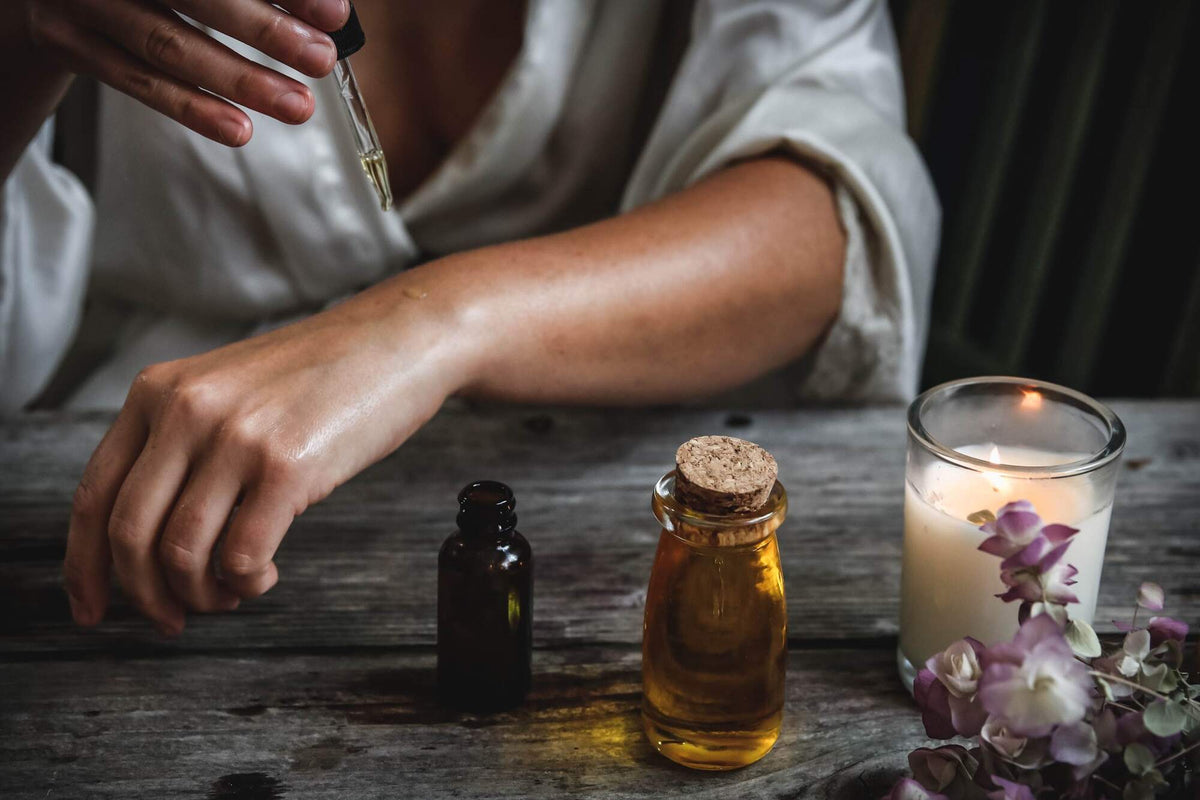
SALES FROM 01/07 TO 02/03: 20% AUTOMATICALLY DEDUCTED IN YOUR CART! FREE DELIVERY IN ALL EU, SWITZERLAND & UK FROM €70.
Navigation
Menu
CBD Oil and Hemp Oil: what are the differences?
Listen to this article:
CBD and hemp oil come from the same hemp plant. We can therefore legitimately wonder if it is the same product, with different names. It is not so ! There are indeed big differences between the two, which we present to you in this article. Let's start with hemp oil.
Like olive or walnut oil, hemp oil is a food oil, appreciated for its taste. Its production process is comparable to that of other oils of this type. The basic substance is hemp seed, whose shell is particularly strong. To produce the oil, the seeds are hulled and poured into a mill. We then go through cold pressing to obtain a greenish yellow oil ready to be consumed.
It is also possible to press hemp seeds at high temperatures. This production method is, however, considered less gentle, with a risk of loss of aromas. The result is a dark green hemp oil with a very intense and rather unpleasant nutty taste.
Hemp oil can do much more than just enhance dishes. It contains vitamins E, B1, B2, minerals such as magnesium, potassium and calcium. There are also trace elements such as zinc, iron, copper and manganese. Experts also consider it particularly healthy thanks to its significant contribution of polyunsaturated fatty acids, which promote the regulation of blood pressure, and which reduces the incidence of chronic inflammatory diseases .
Hemp oil (hemp seed oil) therefore provides essential fatty acids, vitamins, minerals and trace elements. However, be careful of side effects in the event of overconsumption of fatty acids, for which a balanced dosage is recommended.
Hemp oil is a dry oil that does not clog pores and penetrates the skin quickly. The fatty acids it contains, such as linoleic acid, alphalinoleic acid and gamma linolenic acid, are considered beneficial substances for the skin.
Studies suggest they can regulate hydration levels, relieve irritation and itching. It can also be assumed that vitamin E and the plant pigments chlorophyll and carotenoid also have an antioxidant effect.
The most important raw material for producing CBD oil are the flowers, or rather the trichomes (plant hairs) on the flowers of the female hemp plant. This is in fact where the largest quantity of cannabidiol (CBD) is found. To fully understand, you need to know that the hemp plant contains more than 100 different cannabinoids. The plant needs these chemical compounds to defend itself against predators and to protect itself from bacteria or fungi, for example.
Cannabidiol (CBD) and tetrahydrocannabinol (THC) are the best-known cannabinoids. Unlike THC, CBD does not have psychoactive properties. Psychoactivity is characterized when a substance acts on the central nervous system and triggers changes in perception and consciousness. Cannabidiol oil producers use exclusively hemp plants which contain only very small traces of THC as required by French law, i.e. a level which must not exceed 0.2%.
After harvesting, the flowers should dry for up to seven days in a dark, well-ventilated room. The CBD is then present in the form of cannabidiolic acid, also called CBDA. CBDA is a chemical precursor to cannabidiol. To transform the acid into Cannabidiol, it is necessary to heat the plant material. This process is called decarboxylation; upon heating, the acid separates and CBD remains. To recover the CBD from dried flowers, extraction with CO2 or using a solvent such as alcohol is then applied.
Manufacturers then add a carrier oil (for example hemp seed , grape seed or olive oil) to the extract thus obtained, in order to facilitate the use of the oil. CBD.
Numerous feedbacks and consumer evaluations attest to the benefits of the CBD molecule. Thus, they say that they use Cannabidiol against many ailments, for example against pain, sleep disorders, stress, anxiety, inflammation or skin problems. For example, some women report using CBD during menopause .
Many consumers use CBD to improve their overall well-being. Although it is still too early to be able to confirm the full benefits of Cannabidiol, most of the studies published so far offer hope. It appears that the hemp plant offers an exceptional range of benefits, of which CBD is surely the most promising.
You will understand that these two oils, although coming from the same plant, have two different purposes, depending on whether they are produced from the seeds or whether the CBD is made from the female flowers of the plant. Although it is still too early to be able to scientifically confirm the effect of Cannabidiol on certain diseases and conditions, most of the studies published so far offer hope.
Hemp seed oil offers high levels of key nutrients and is a popular culinary and cosmetic product. The cannabinoid interacts with our endocannabinoid system as well as other receptors to produce a physiological change. You can therefore consume them separately, each having unique benefits.
More articles on the same theme:
Submit your email to get updates on products and special promotions.
